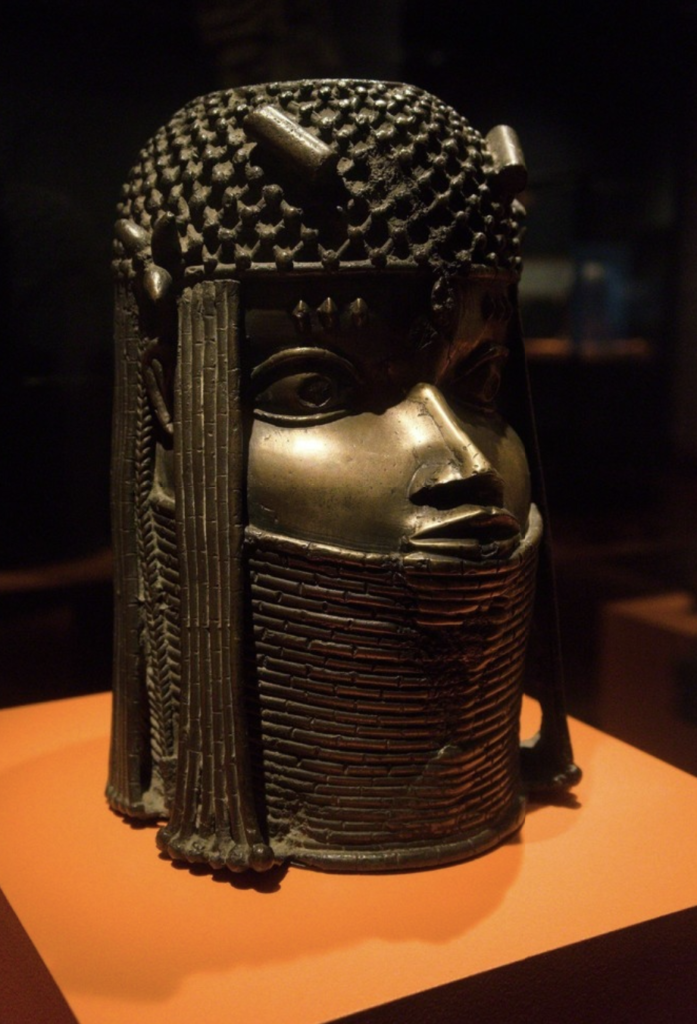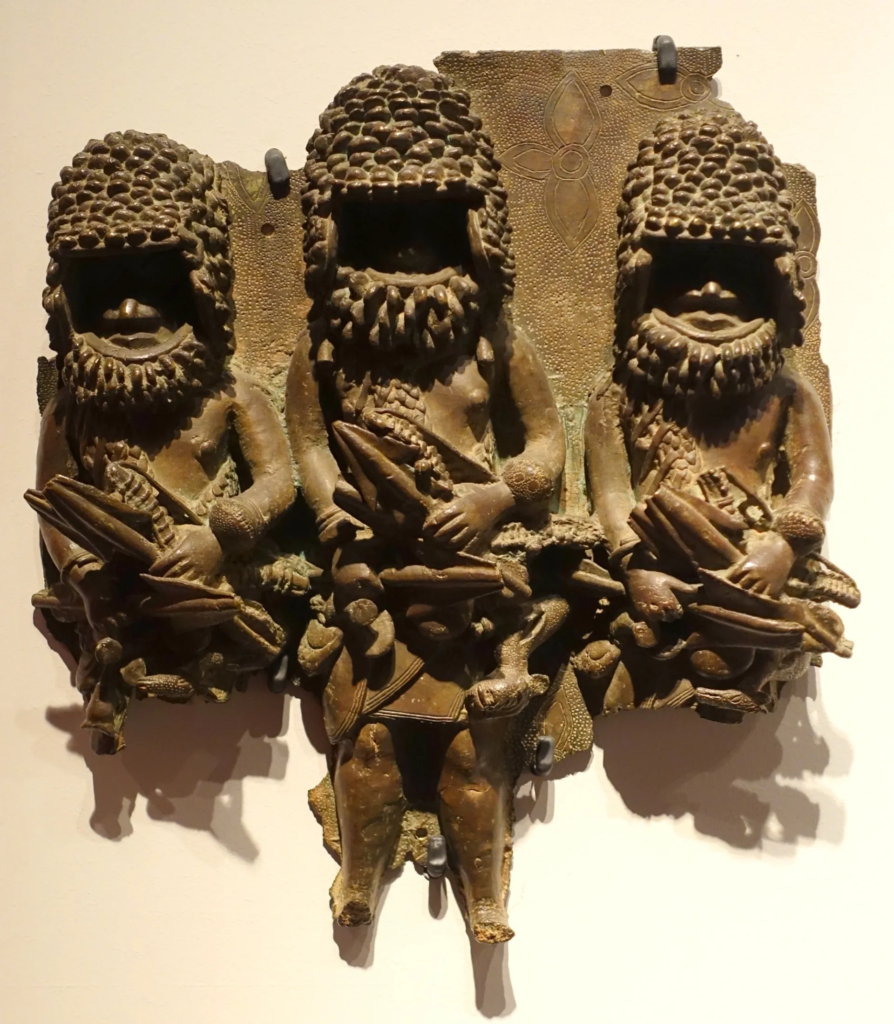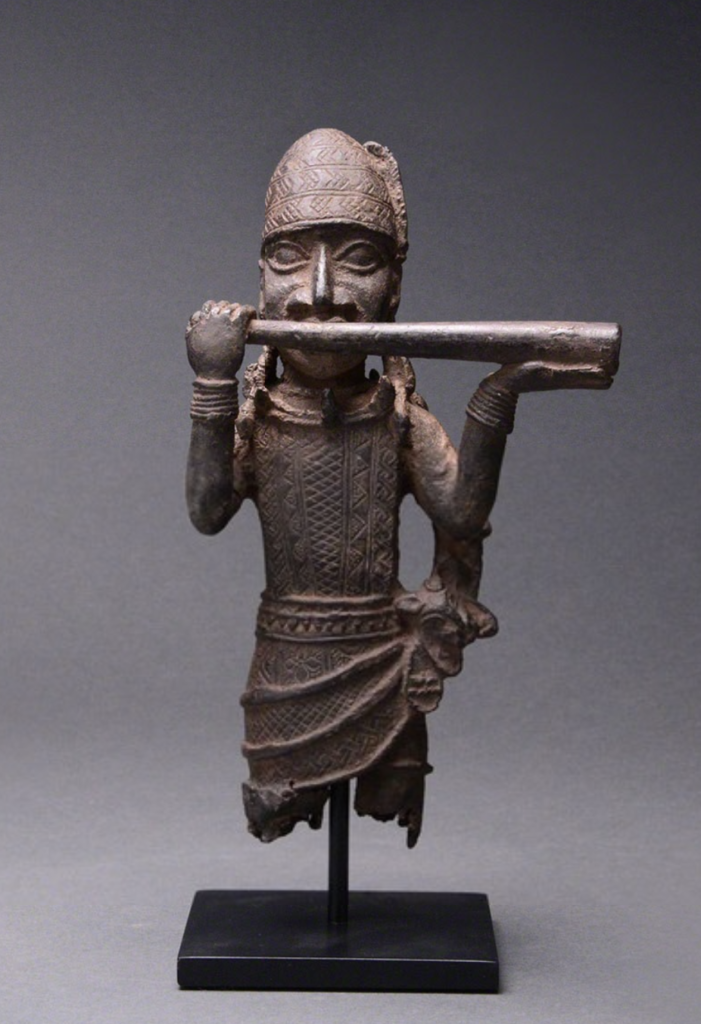The ownership of the Benin Bronzes has been a topic of heated debate for decades. The collection of bronze sculptures was looted by the British army during the punitive expedition to Benin City in 1897. The recent announcement by the Nigerian government places the Oba of Benin as the official owners of the artefact. This has raised eyebrows and sparked further discussion about the role of museums in the repatriation of looted cultural objects.
The Bronzes are the finest examples of African art. The removal of the artefacts from Benin City by the British army is a significant act of cultural theft. For years, various cultural organizations, including Nigeria have been calling for the return of the Bronzes to their rightful owners. However, the question of who exactly those owners are has been a contentious one.

Image courtesy of Museum of Ethnography
The recent announcement by the Nigerian government regarding the owners of the Bronzes has mixed reactions, particularly from Western Museums. Some have welcomed the decision, arguing that it is a step towards rectifying the historical injustices done in Benin. Critics still question whether to trust the Oba of Benin with the safekeeping of the Bronzes. This criticism is demeaning and insulting to the people of Benin, who created the artefacts. How dare you criticize the creators for taking care of their creations!
Critics argue that the decision of ownership by the Oba Tribe raises questions about transparency and accountability. The Oba is a hereditary monarch. Critics are concerned about the misuse of the bronzes. This is nothing new to Africa as it has been ongoing for years. The audacity of these critiques against the people of Benin is frankly appalling. Critiques also say that the ObaTribe is not equipped with the expertise and resources to properly care for the collection.

Additionally, the ownership of Oba of Benin may complicate the process of repatriation. Museums around the world hold pieces of the Benin Bronzes in their collections. The question of ownership is likely to become more complicated, with Oba of Benin owning the Bronzes. We’re in for a power trip.
Despite these concerns, this is a positive step towards the repatriation of looted cultural objects. It is a recognition of the injustice effectuated by colonisers in Benin City. They should dictate their restitution as they have a direct connection to the objects and their history.

Ultimately, the question of who will museums partner with over the Benin Bronzes is likely to become even more complex in the wake of the Nigerian government’s announcement. However, it is a reminder that the repatriation of looted cultural objects is a complex issue that requires sensitivity, nuance, and a willingness to engage in difficult conversations about the legacies of colonialism and cultural theft.
In conclusion, the decision by the Nigerian government to make the Oba Tribe the official owner of the Benin Bronzes has sparked debate and raised concerns about transparency and accountability. This move will complicate the process of repatriation. However, it recognizes the ownership of the artefacts by the people of Benin. The move places the Oba tribe as the power holders as far as restitution is concerned. The question of who will museums partner with over the Bronzes remains an open one, but the recent announcement serves as a reminder that the repatriation of looted cultural objects is a complex issue that requires careful consideration and dialogue.



1 Comment
Pingback: Benin Bronzes Controversy: Nigerian Government’s Decision. – LBNN